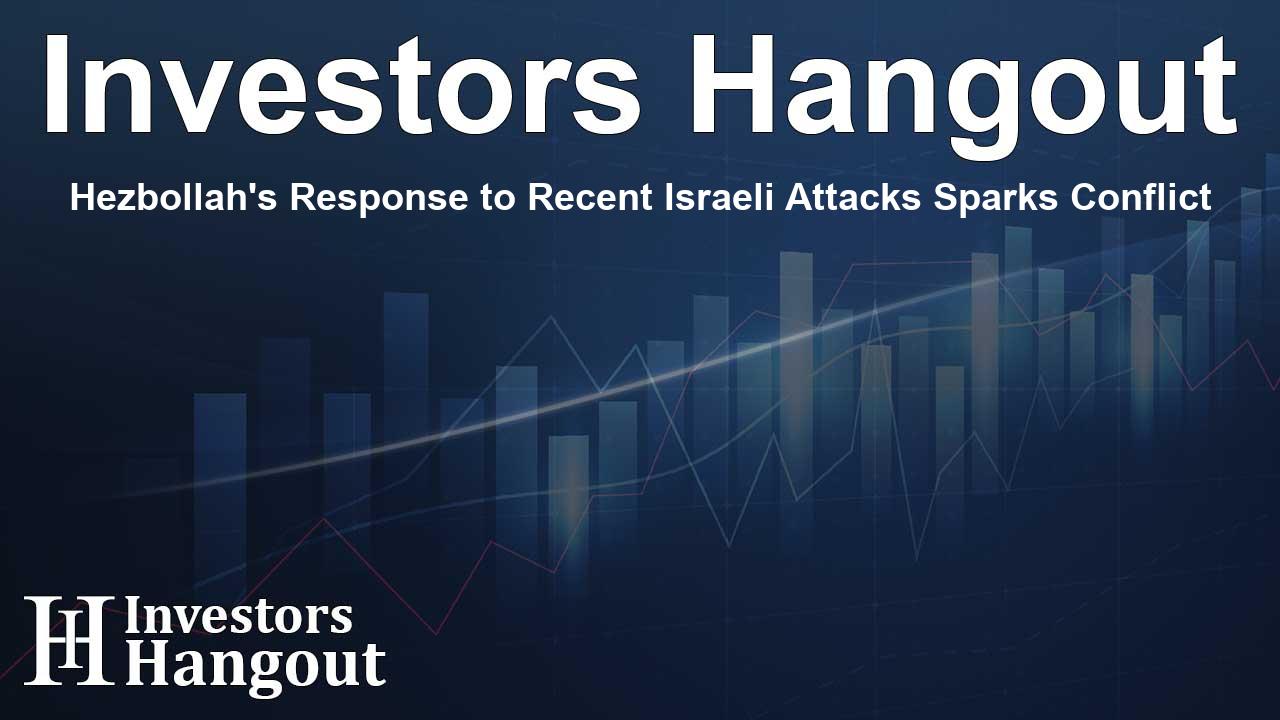Hezbollah's Response to Recent Israeli Attacks Sparks Conflict

Escalation of Tensions between Hezbollah and Israel
A recent flare-up in hostilities saw Hezbollah launching a heavy barrage of rockets towards Israel, following a devastating airstrike by Israeli forces in Beirut that reportedly resulted in numerous fatalities. The attacks took place in a context of already heightened tensions, marking a significant step in the ongoing conflict that has plagued the region for years.
Impact on Israeli Territory
On a Sunday marked by violence, the Israeli military confirmed that several homes near Tel Aviv were set ablaze due to the Hezbollah rocket strikes. Reports indicated that the organization fired approximately 240 rockets, with many intercepted by defense systems. Fortunately, injuries were reportedly minimal, with authorities indicating that several people sustained only minor shrapnel wounds.
Destruction and Casualties
The destruction manifesting in Israeli neighborhoods included damaged buildings, which were captured on footage showing the aftermath of the rocket attacks. The Israeli Defense Forces (IDF) specifically targeted areas within Hezbollah's control, attempting to deter further escalation from their adversaries.
Hezbollah's Military Strategy
Hezbollah has consistently vowed to retaliate against Israeli operations, particularly following attacks on its strongholds in Beirut. The group's response included precision strikes aimed at military installations near Tel Aviv—a clear demonstration of its capability and intent to challenge Israeli military actions.
Israeli Airstrikes on Beirut
The IDF escalated its air operations significantly, making one of its most powerful strikes on the capital of Lebanon, with indications that this could have significant repercussions. Reports suggest that airstrikes targeted facilities deliberately located within civilian areas, leading to heightened scrutiny over military engagement rules and the protection of civilians.
Humanitarian Impact and Regional Fallout
The ongoing conflict has profoundly affected Lebanese citizens, with reports confirming that the recent airstrikes have led to over a thousand individuals being displaced. One humanitarian concern is the number of casualties reported; the Lebanese health ministry raised the death toll from prior strikes to at least 29, revealing the devastating impact of the escalating violence.
Diplomatic Efforts and Ceasefire Talks
Diplomatic channels remain active, with U.S. mediator Amos Hochstein recently visiting the region to facilitate ceasefire discussions. Commentary from international leaders suggests that pressure must be maintained on both Israel and Hezbollah to accept a feasible ceasefire proposal, highlighting the delicate balance required for lasting peace.
The Role of the Lebanese Army
In addition to civilian casualties, the conflict has also directly impacted military institutions in Lebanon. The Lebanese Army reported casualties among its ranks due to Israeli airstrikes, which raises questions regarding engagement rules. The Israeli military expressed regret over unintended damage but emphasized their operations were explicitly against Hezbollah.
International Community's Response
The European Union expressed its readiness to support Lebanon’s military capabilities with significant financial assistance aimed at stabilizing that sector. Discussions focused on implementing UN Security Council Resolution 1701, which mandates the withdrawal of Hezbollah forces from border areas, underscoring the need for effective international intervention to restore peace.
Looking Ahead
The trajectory of this conflict remains uncertain, and the potential for further escalation looms large. As both sides evaluate their options, the international community continues to stress the importance of dialogue aimed at achieving a comprehensive and lasting peace. It’s crucial for all parties to recognize the devastating human cost of continued hostilities, compelling them to seek common ground.
Frequently Asked Questions
What triggered the recent escalation between Hezbollah and Israel?
The escalation was triggered by Israeli airstrikes in Beirut, which led Hezbollah to retaliate with rocket attacks towards Israel.
How did Israel respond to Hezbollah's rocket attacks?
Israel intensified its air operations against Hezbollah, focusing on military sites in areas controlled by the group.
What are the humanitarian implications of the conflict?
The ongoing fight has resulted in numerous civilian casualties, widespread displacement, and significant destruction of property.
Are there any ongoing diplomatic efforts for a ceasefire?
Yes, there are ongoing diplomatic discussions, and international leaders are pressing both parties to agree on a ceasefire proposal.
What is the international community's stance on the conflict?
The international community is calling for both sides to engage in dialogue and is considering economic support for the Lebanese army to restore stability.
About Investors Hangout
Investors Hangout is a leading online stock forum for financial discussion and learning, offering a wide range of free tools and resources. It draws in traders of all levels, who exchange market knowledge, investigate trading tactics, and keep an eye on industry developments in real time. Featuring financial articles, stock message boards, quotes, charts, company profiles, and live news updates. Through cooperative learning and a wealth of informational resources, it helps users from novices creating their first portfolios to experts honing their techniques. Join Investors Hangout today: https://investorshangout.com/
Disclaimer: The content of this article is solely for general informational purposes only; it does not represent legal, financial, or investment advice. Investors Hangout does not offer financial advice; the author is not a licensed financial advisor. Consult a qualified advisor before making any financial or investment decisions based on this article. The author's interpretation of publicly available data shapes the opinions presented here; as a result, they should not be taken as advice to purchase, sell, or hold any securities mentioned or any other investments. The author does not guarantee the accuracy, completeness, or timeliness of any material, providing it "as is." Information and market conditions may change; past performance is not indicative of future outcomes. If any of the material offered here is inaccurate, please contact us for corrections.